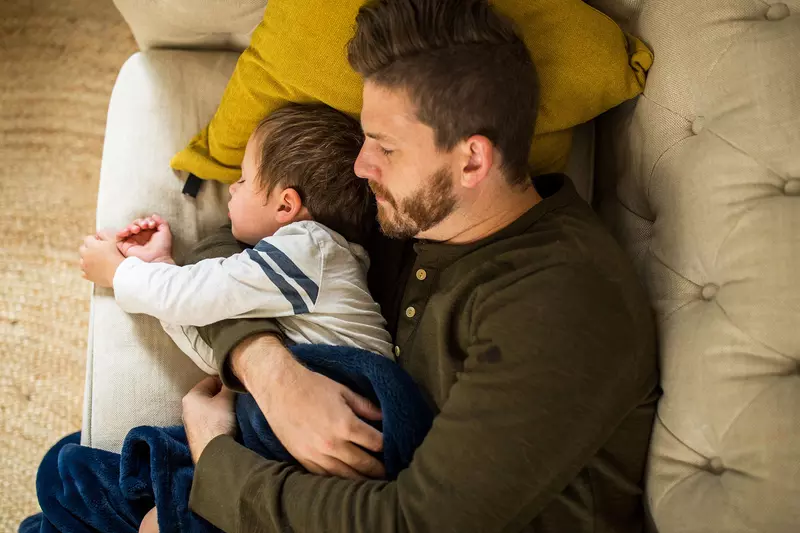- AdventHealth

No matter your age or stage of life, sleep is an essential part of your whole health. A good night’s sleep helps you feel rested and ready to take on the day. The benefits to your physical health are well-documented, too: Sleep can improve your immune systems, heart health and may even reduce your risk of cancer.
These benefits are a constant throughout life. Whether you’re enjoying carefree weekends in your 20s; helping young kids conquer nighttime fears in your 30s; wrestling teenagers awake in your 40s; or noticing gradual changes in your sleep habits after retirement, a solid sleep strategy can help you get the ZZZs you need.
Sleep in Your 20s
Adults need anywhere from seven to nine hours of sleep every night to feel their best. The amount of sleep varies between individuals, but generally stays the same throughout your adult life. You may find you function best after seven solid hours, but your partner needs closer to eight or nine hours to be fully charged for the day.
Your 20s are the perfect time to establish healthy sleep habits that you can fall back on in the decades to come. That may include:
A Consistent Bedtime and Wake-Up Time
Avoid the temptation to oversleep on the weekend. Research has shown that irregular sleep patterns can increase your risk of obesity, high blood pressure and heart disease.
A Bedtime Routine
Building a routine — one that includes doing the same things before bed and when you first wake-up in the morning — can help make consistent bedtimes a little easier. Quiet your mind and body with calming activities before bed. Ease into your morning with the same rituals each day: a cup of coffee, a warm shower or daily gratitude.
A Comfortable Environment
A relaxing and comfortable bedroom can help you wind down and relax after a busy day. Build the sleep environment that’s right for you[EZ1] .
Sleep in Your 30s and 40s
By your 30s and 40s, you’ve likely settled into a comfortable sleep routine that’s right for you. You’ve built good habits (and may need to break some bad ones). The biggest challenge in your 30s and 40s may be sleep interrupted by children.
Whether you have a newborn at home who is up at all hours, a toddler who’s afraid of the dark, or a teenager who loves late nights and loud music, try to set ground rules for you and your family for a good night sleep.
Divide and Conquer Late Nights and Early Mornings
When your little one gets restless, tag team the situation. Have your partner settle babies and small children in the late night hours and agree to take on the early morning shift. This will give you each a few hours of uninterrupted sleep.
Establish Healthy Routines With Your Little Ones
Help your children settle into a good night’s sleep with a consistent, relaxing routine. Set boundaries for when your child can (or cannot) come into your bed. Every family is different, so focus on what’s best for you — not what someone else says you should do.
Set Curfews
Give your teens a curfew that gives them a chance to connect with friends, but ensures you all get the sleep you need.
Sleep in Your 60s and Beyond
Sleep changes are a normal part of the aging process. You may suddenly find it’s more difficult to fall asleep and stay asleep. Many think this is because you need less sleep when you’re older, but that’s not necessarily the case. Sleep disturbances are more likely to be caused by changes to our sleep cycle.
Older adults are more likely to spend most of their sleep time in lighter stages of sleep instead of REM sleep, the phase of sleep marked by dreams and a deeper, more satisfying sleep. They’re also up more frequently throughout the night because of physical changes or as a side effect of medication.
Adults over age 65 are also more likely to experience sleep disorders, including sleep apnea, insomnia or restless leg syndrome. All these challenges add up to a restless night and days of naps. It may be time to revisit the bedtime habits you built in your 20s to get a better night sleep:
- Avoid late afternoon naps
- Cut back on caffeine
- Focus on relaxing activities (like taking a warm bath) to unwind before bed
- Go to bed at the same time every night
Take Note of Your Sleep Challenges
A good night’s sleep is critical to your physical, mental and spiritual health. Whatever your age, family situation or goals, commit to getting the rest your body needs. If you’re struggling with sleeping at night, talk to your primary care provider. A complete evaluation can help shed light on the answers you need to feel well and well-rested when morning comes.


